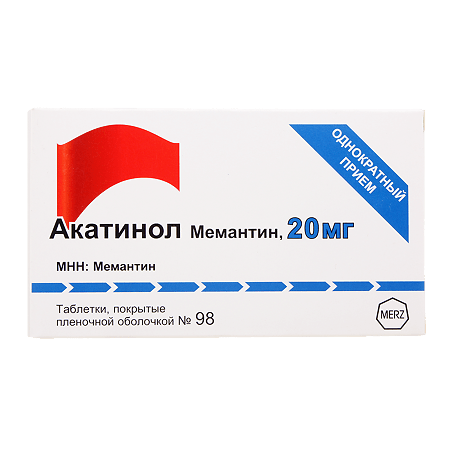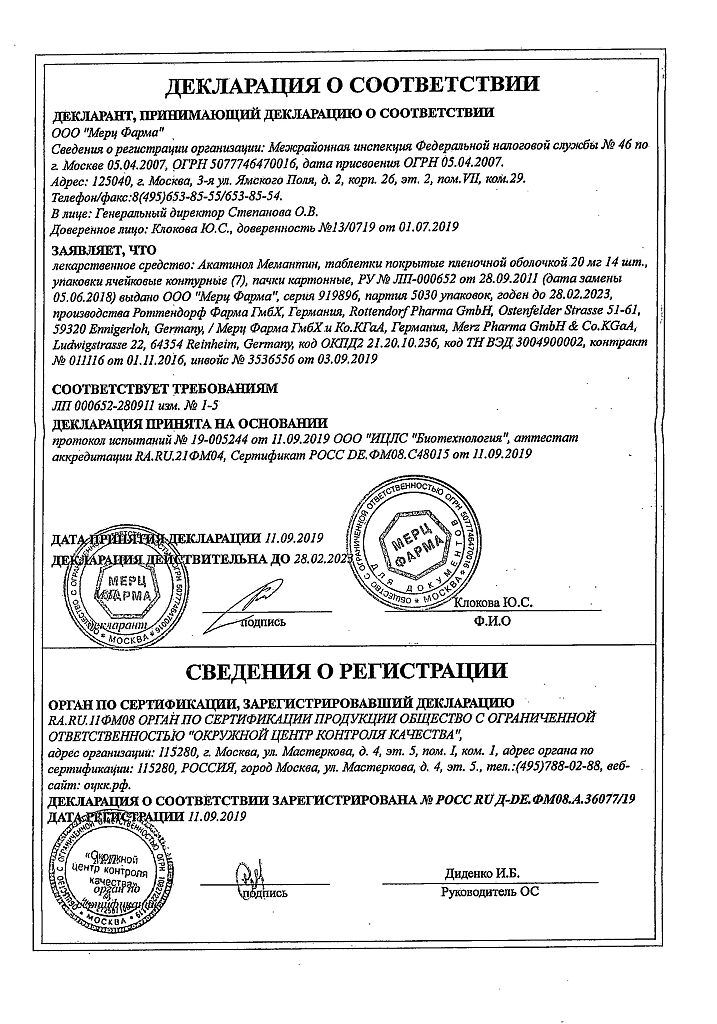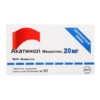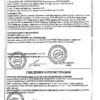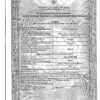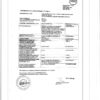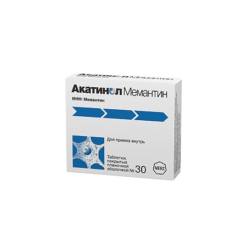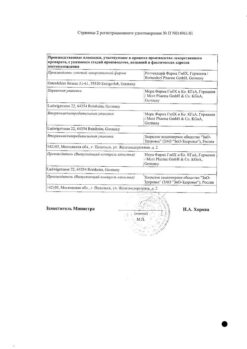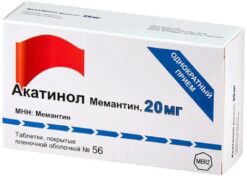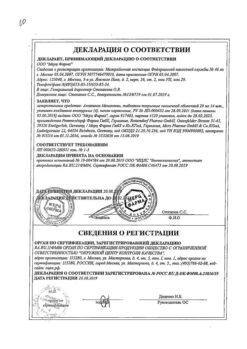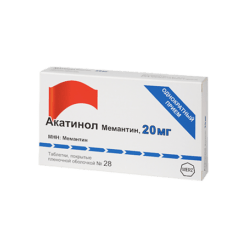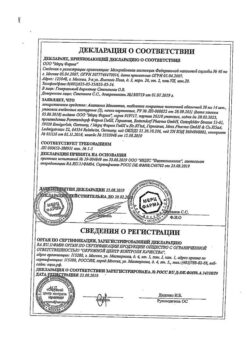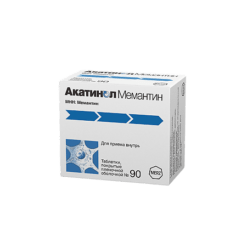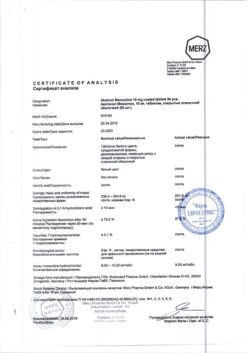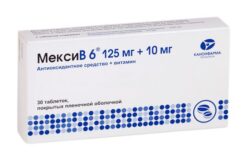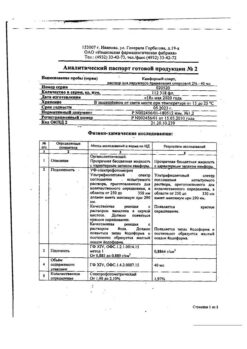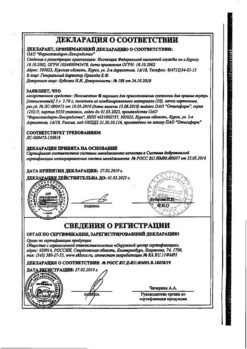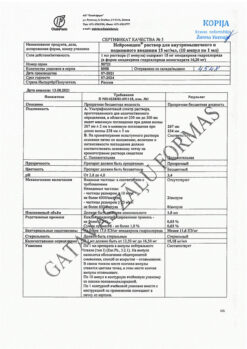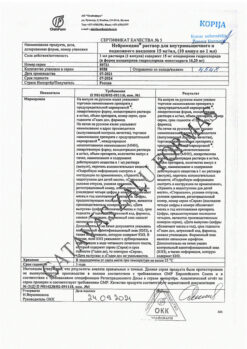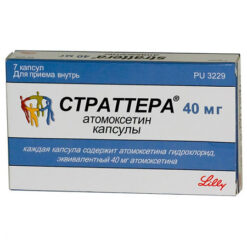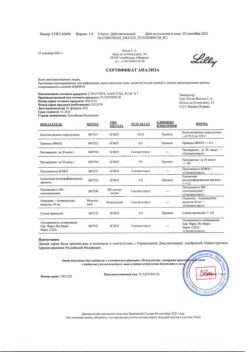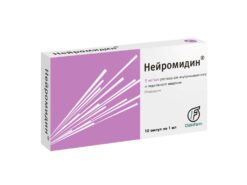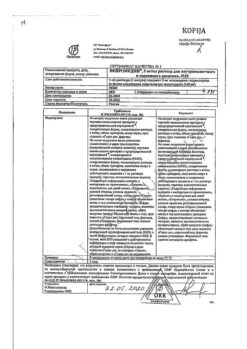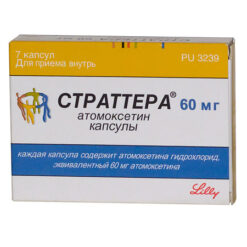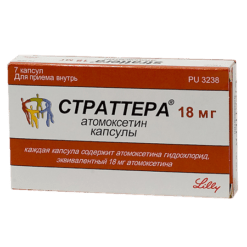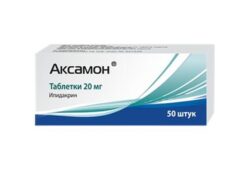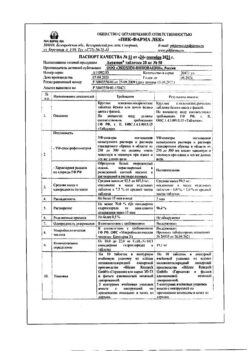No products in the cart.
Akatinol Memantine, 20 mg 98 pcs
€228.87 €190.72
Description
Pharmacodynamics
As a non-competitive antagonist of N-methyl-D-aspartate (NMDA)-receptors it has modulatory effect on glutamatergic system. It regulates ion transport, blocks calcium channels, normalizes membrane potential, improves nerve impulse transmission. Improves cognitive processes, increases daily activity.
Pharmacokinetics
Akatinol Memantine is quickly and completely absorbed after oral administration. Maximum plasma concentration is reached within 2-6 hours. No cumulation of the drug is noted in normal renal function. Excretion is biphasic. Period of semiejection half-life is 4-9 hours in the first phase, and 40-65 hours in the second phase.
It is excreted in the urine.
Indications
Indications
Dementia of Alzheimer’s type, vascular dementia, mixed dementia of all degrees of severity.
Pharmacological effect
Pharmacological effect
Pharmacodynamics
Being a non-competitive antagonist of N-methyl-D-aspartate (NMDA) receptors, it has a modulating effect on the glutamatergic system. Regulates ion transport, blocks calcium channels, normalizes membrane potential, improves the process of nerve impulse transmission. Improves cognitive processes, increases daily activity.
Pharmacokinetics
After oral administration, Akatinol Memantine is quickly and completely absorbed. The maximum concentration in blood plasma is achieved within 2-6 hours. With normal renal function, no accumulation of the drug was observed. Excretion occurs in two phases. The half-life is 4-9 hours in the first phase, 40-65 hours in the second phase.
Excreted in urine.
Special instructions
Special instructions
The optimal dose is achieved gradually, with the dose increasing every week.
Active ingredient
Active ingredient
Memantine
Composition
Composition
Active ingredient:
memantine hydrochloride 20 mg;
Excipients:
lactose,
MCC,
colloidal silicon dioxide,
talc,
magnesium stearate,
Shell:
methacrylic acid copolymer,
sodium lauryl sulfate,
talc.
Contraindications
Contraindications
individual hypersensitivity to the drug Akatinol Memantine;
severe renal dysfunction;
pregnancy;
breast-feeding;
children under 18 years of age (due to insufficient data).
With caution:
thyrotoxicosis;
epilepsy;
convulsions (including history);
myocardial infarction;
heart failure.
Side Effects
Side Effects
Adverse reactions are classified according to clinical manifestations (according to damage to certain organ systems) and frequency of occurrence:
From the body as a whole – common adverse reactions
Often
Headache
Rarely
Fatigue
Infections
Rarely
Fungal infections
Mental disorders
Often
Drowsiness
Rarely
Confusion
Rarely
Hallucinations1
Frequency not set
Psychotic reactions2
Cardiovascular disorders
Rarely
Hypertension
Rarely
Venous thrombosis/thromboembolism
Gastrointestinal disorders
Often
Constipation
Rarely
Nausea, vomiting
Frequency not set
Pancreatitis2
Disorders of the central and peripheral nervous system
Often
Dizziness
Rarely
Gait disturbance
Very rarely
Convulsions
1Hallucinations have been observed mainly in patients with Alzheimer’s disease at the stage of severe dementia.
2 There are isolated reports of the occurrence of these adverse reactions when using the drug in clinical practice (data obtained after the drug went on sale).
Interaction
Interaction
When used simultaneously with barbiturates, neuroleptics, and anticholinergics, the effect of the latter may be enhanced. When used together, it may change (increase or decrease) the effect of dantrolene or baclofen, so the doses of the drugs should be selected individually.
Overdose
Overdose
Symptoms: increased severity of side effects.
Treatment: gastric lavage, taking activated carbon, symptomatic therapy.
Storage conditions
Storage conditions
At a temperature not exceeding 25 °C
Shelf life
Shelf life
4 years
Manufacturer
Manufacturer
Rottendorf Pharma GmbH, Germany
Additional information
| Shelf life | 4 years |
|---|---|
| Conditions of storage | At a temperature not exceeding 25 °C |
| Manufacturer | Rottendorf Pharma GmbH, Germany |
| Medication form | pills |
| Brand | Rottendorf Pharma GmbH |
Other forms…
Related products
Buy Akatinol Memantine, 20 mg 98 pcs with delivery to USA, UK, Europe and over 120 other countries.

